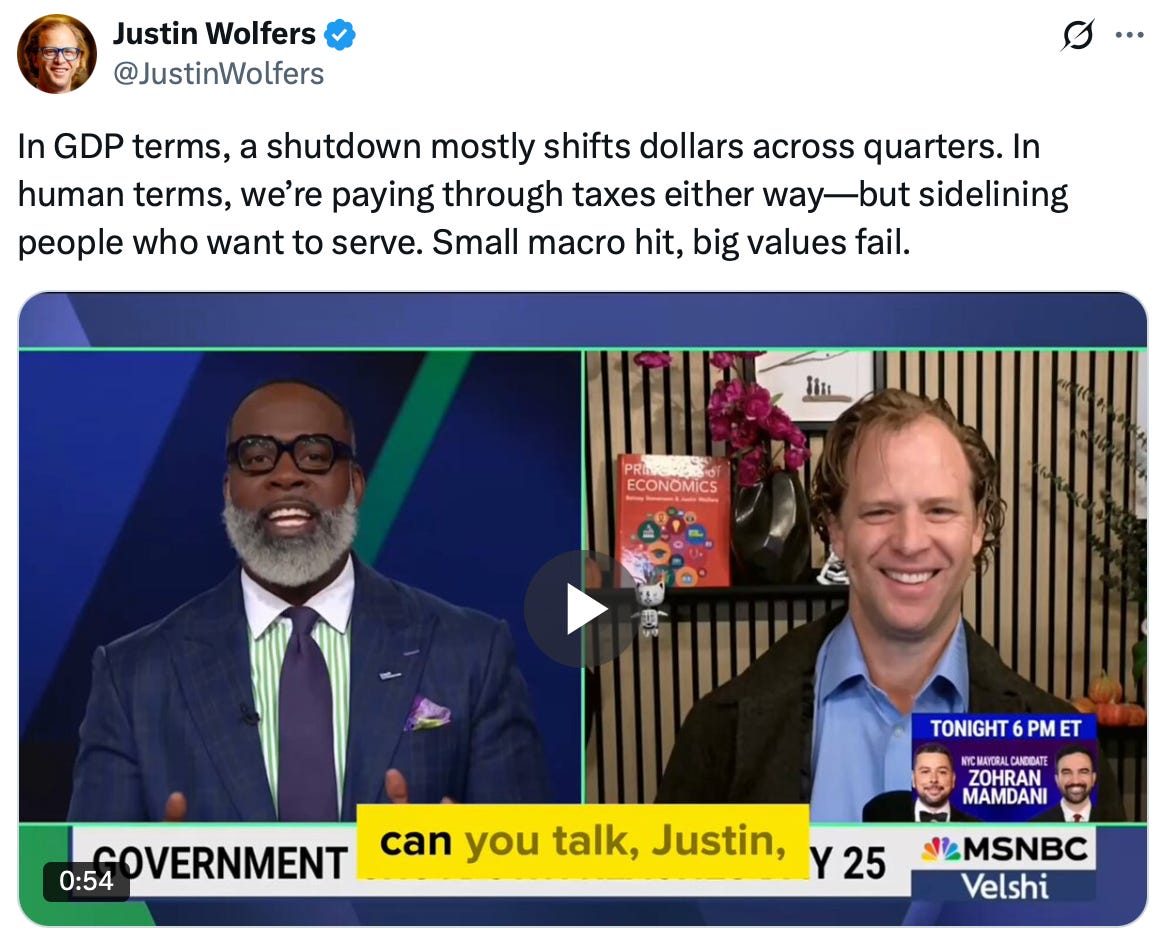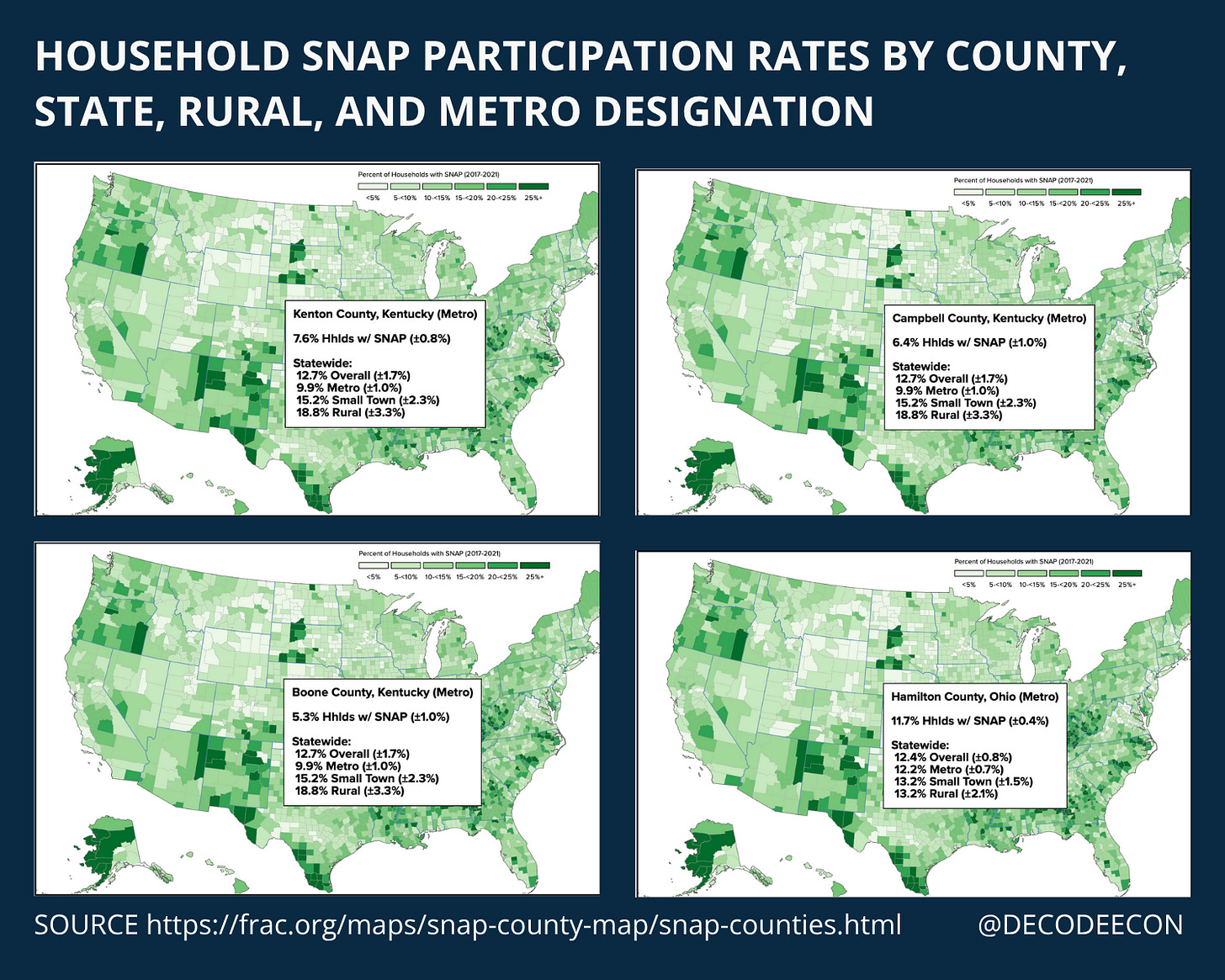The Failure to Govern is an Economic Problem
Day 31 of the Shutdown
We are now 31 days into the government shutdown, just four days short of the longest in U.S. history.
As economist Justin Wolfers noted, “In GDP terms, a shutdown mostly shifts dollars across quarters. In human terms, we’re paying through taxes either way — but sidelining people who want to serve. Small macro hit, big values fail.”
The impact of this shutdown will be a deterioration of trust in government. Whether that outcome is intentional or not — I’ll leave that to the political pundits — this moment reflects how the U.S. democratic structure and its incentives often fail to align with the values of democracy.
Governments are Supposed to Govern
This gridlock is evidence that governments have become more focused on winning arguments than solving problems. Governing isn’t about scoring political points; it’s about managing trade-offs, bringing people together, and ensuring we move forward in the service of the public.
Good governance doesn’t mean perfect outcomes; it means reducing uncertainty so that others can plan effectively. That’s what markets crave: clarity and predictability. We are lacking both.
Shutdown’s Impact on Institutions
Economic growth requires strong institutions. They provide the rules, predictability, and enforcement mechanisms that allow markets to function and innovation to flourish. Economists such as Douglass North and Daron Acemoglu have demonstrated that long-term prosperity is determined by inclusive institutions, systems that protect property rights, enforce contracts, and ensure fair competition. Growth happens when the government provides stability and structure.
Shutdowns and policy paralysis are symptoms of institutional fragility
They undermine accountability by rewarding brinkmanship instead of governance.
They reduce transparency, as decisions often occur behind closed doors through last-minute compromises.
They damage trust, both in institutions and in the belief that public servants can act in the collective interest.
From an economic lens, shutdowns are a coordination failure, the democratic equivalent of a market crash. They make the price of democracy more expensive by increasing uncertainty, disrupting public services, and slowing productivity.
However, we have become desensitized to shutdowns, and many of us have fallen into the trap, focusing on our political party’s winning arguments rather than solving problems.
In the long run, every shutdown chips away at the credibility of the very institutions that make democracy possible.
SNAP Benefits
On November 1, more than 42 million Americans, roughly 40 percent of them children, will lose access to the Supplemental Nutrition Assistance Program (SNAP) if the shutdown continues.
Below are maps showing SNAP participation rates across Northern Kentucky; you can explore the interactive version here.
In Boone, Campbell, and Kenton counties, the household participation rates are 5.3%, 6.4%, and 7.3%, respectively. Across the river in Hamilton County, participation rises to 11.7 %.
Statewide, approximately 12.7% of Kentucky households rely on SNAP, compared with 9.9% in metropolitan areas and 18.8% in rural communities, underscoring that hunger is both a local and national issue.
The Bottom Line
The economic story of a shutdown isn’t just about lost output today; it’s about lost confidence. Every delay, every missed paycheck, every suspended service erodes the institutional trust that underpins growth.
Inclusive institutions make prosperity possible. But they only stay strong when leaders choose governance over gridlock, and when citizens expect nothing less.
The problem may be that we do not expect more.




The interactive you included is priceless.
I have to say i like the Canadian system. If they cannot pass a budget they immediately go into elections so that they can vote in leaders willing to work at.